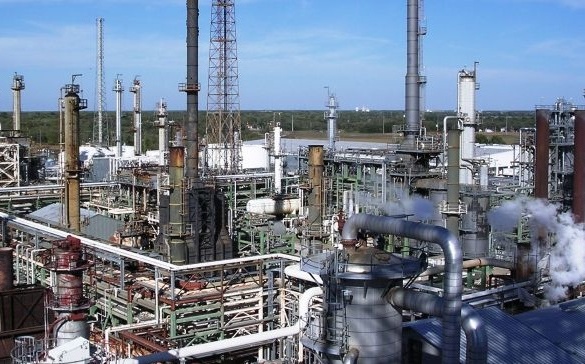Iran exported $14.1 billion of petrochemical products in 2018-2019
UPDATE, 1145 GMT: Iran says US sanctions on its petrochemical industry show Donald Trump is not serious about talks with the Islamic Republic’s ledership.
Foreign Ministry spokesman Abbas Mousavi said, “Only one week was needed for the US president’s claim that he was ready to negotiate with Iran to be proven hollow.”
Mousavi condemned the sanctions as a “blatant violation” of international law and urged other nations to challenge Washington’s “economic terrorism”:
All countries have a responsibility to react to the blatant violation of fundamental principles of international law and not let the achievements of the international community regarding multilateralism fade away by US bullying and unilateral measures.
The Trump administration has imposed new sanctions on Iran, offsetting speculation about the start of indirect talks between Washington and Tehran.
On Friday, Secretary of State Mike Pompeo and Treasury Secretary Steven Mnuchin announced measures against Iran’s petrochemicals industry, a key sector of export revenue for the Islamic Republic’s troubled economy.
The officials asserted that Iran’s main petrochemicals company supports the Revolutionary Guards, declared a “foreign terrorist organization” by the Administration in early April.
Donald Trump and his advisers have stepped back from military confrontation, after the despatch of forces to the region and hawkish statements from National Security Advisor John Bolton.
Japan, Germany, and Oman are all reportedly serving as channels for signals between the US and Iran. Japanese Prime Minister Shinzo Abe and German Foreign Minister will both be in Tehran next week.
But the US Treasury indicated that the Administration’s campaign of “maximum pressure” will not be eased, with the Persian Gulf Petrochemicals Industries Company and dozens of its subsidiaries and sales agents would be punished.
Our maximum economic pressure is aimed at depriving the Iranian regime of the funding it needs to sustain its expansionist foreign policy. Iran must end its nuclear threats and escalation, stop the testing of advanced ballistic missiles, cease support for terrorist proxies, and halt the arbitrary detention of foreign citizens. The only path forward is for Iran to negotiate a comprehensive deal that addresses these destabilizing behaviors.
Iran’s oil exports have fallen almost 60% since April 2018, and the US imposed comprehensive sanctions on the energy and financial sectors in November, six months after Donald Trump withdrew from the 2015 nuclear agreement between Iran and the 5+1 Powers.
As a result, the Iranian regime has been looking to petrochemicals sales to make up for some of the lost export revenues.
From March 2018 through March 2019, Tehran exported $14.1 billion of petrochemical products, 32% of Iran’s non-oil exports. Chief customers were China ($5.6 billion), the UAE ($2 billion), Iraq ($1.5 billion), and Turkey and India (almost $1 billion).

